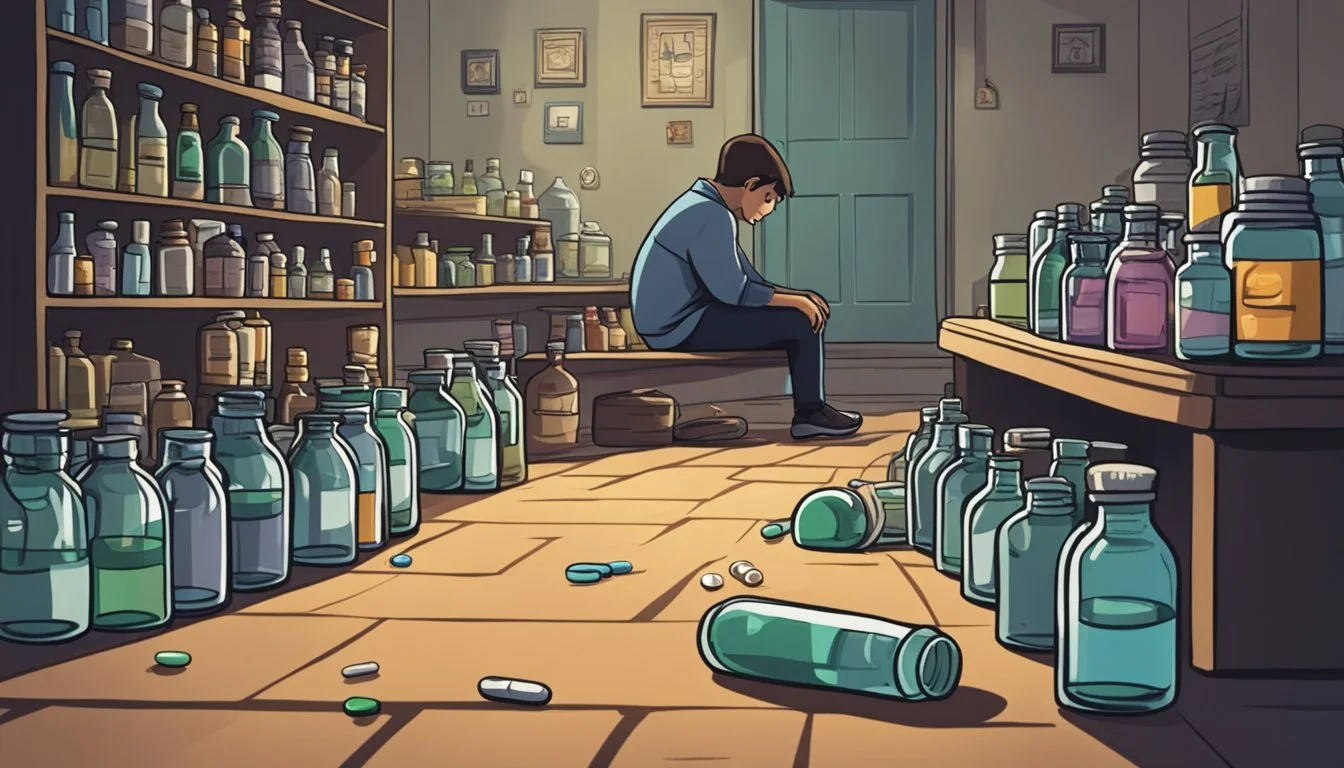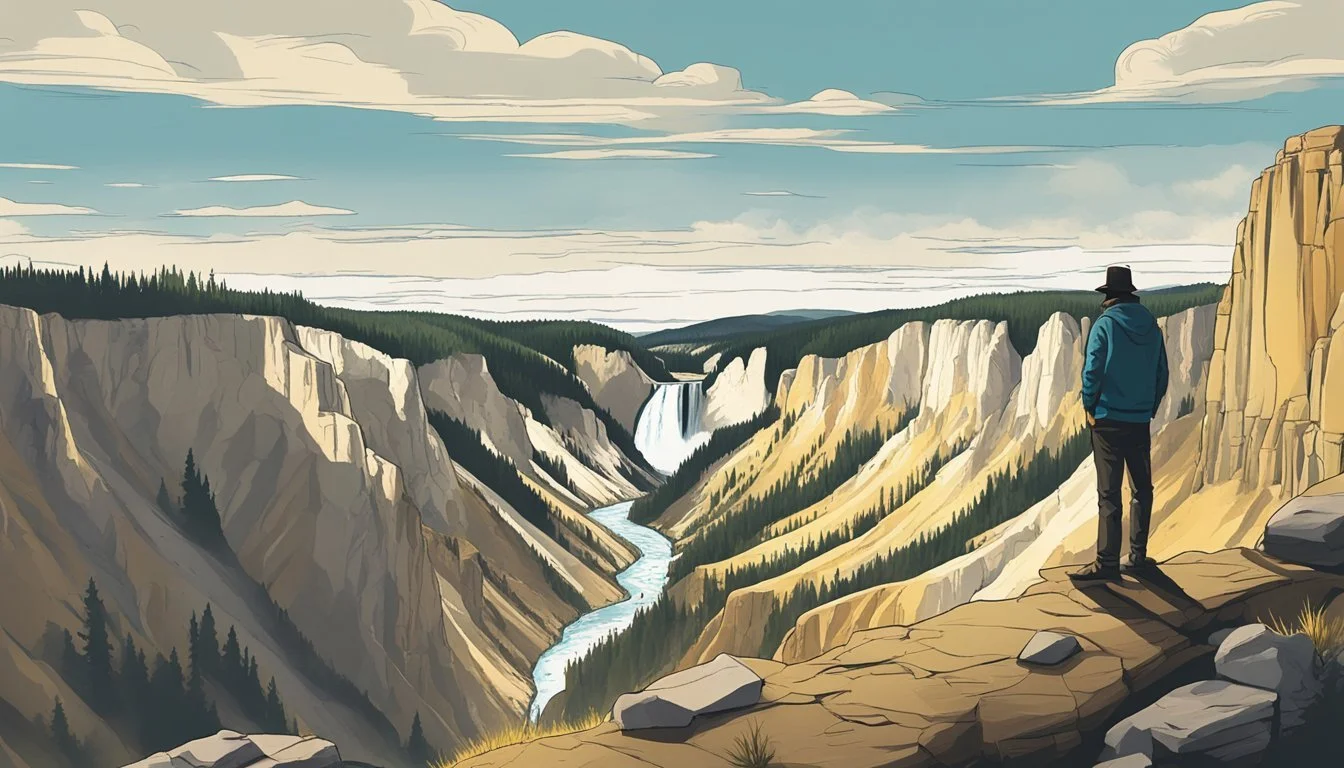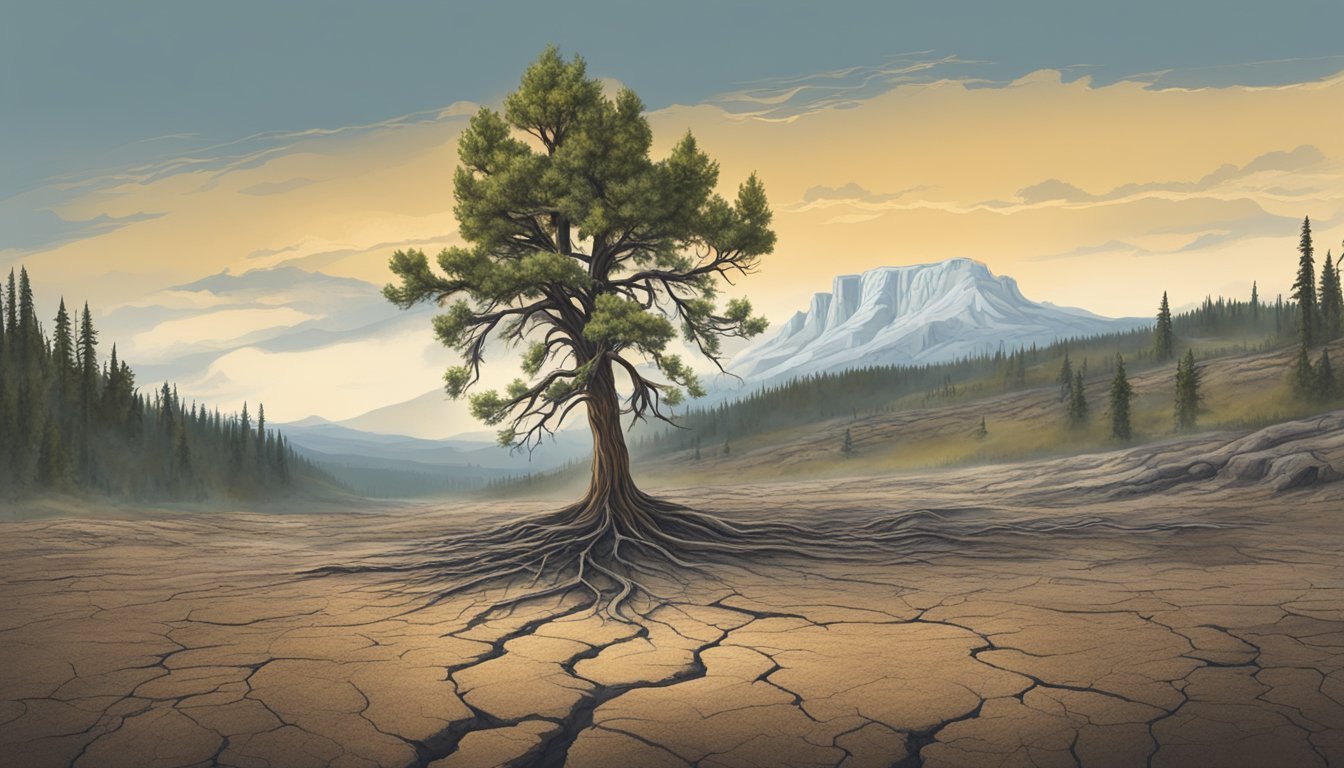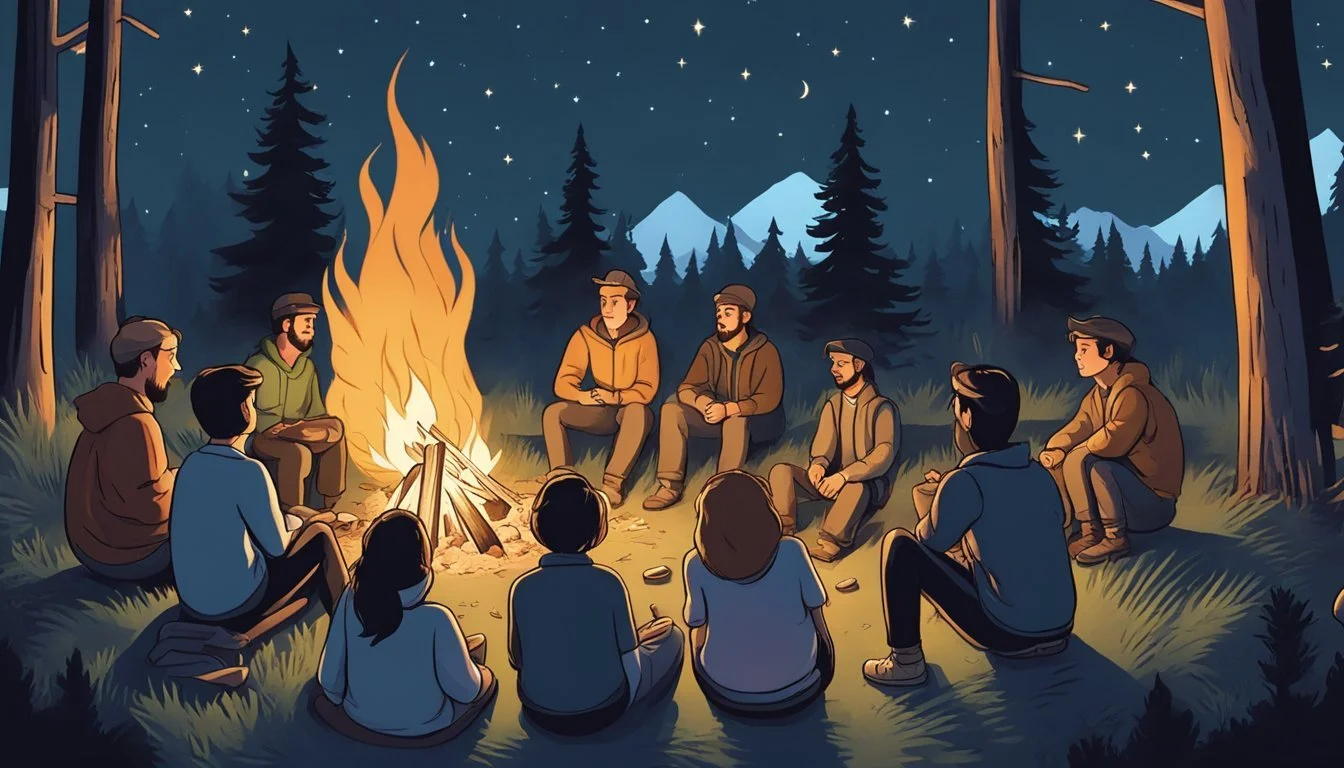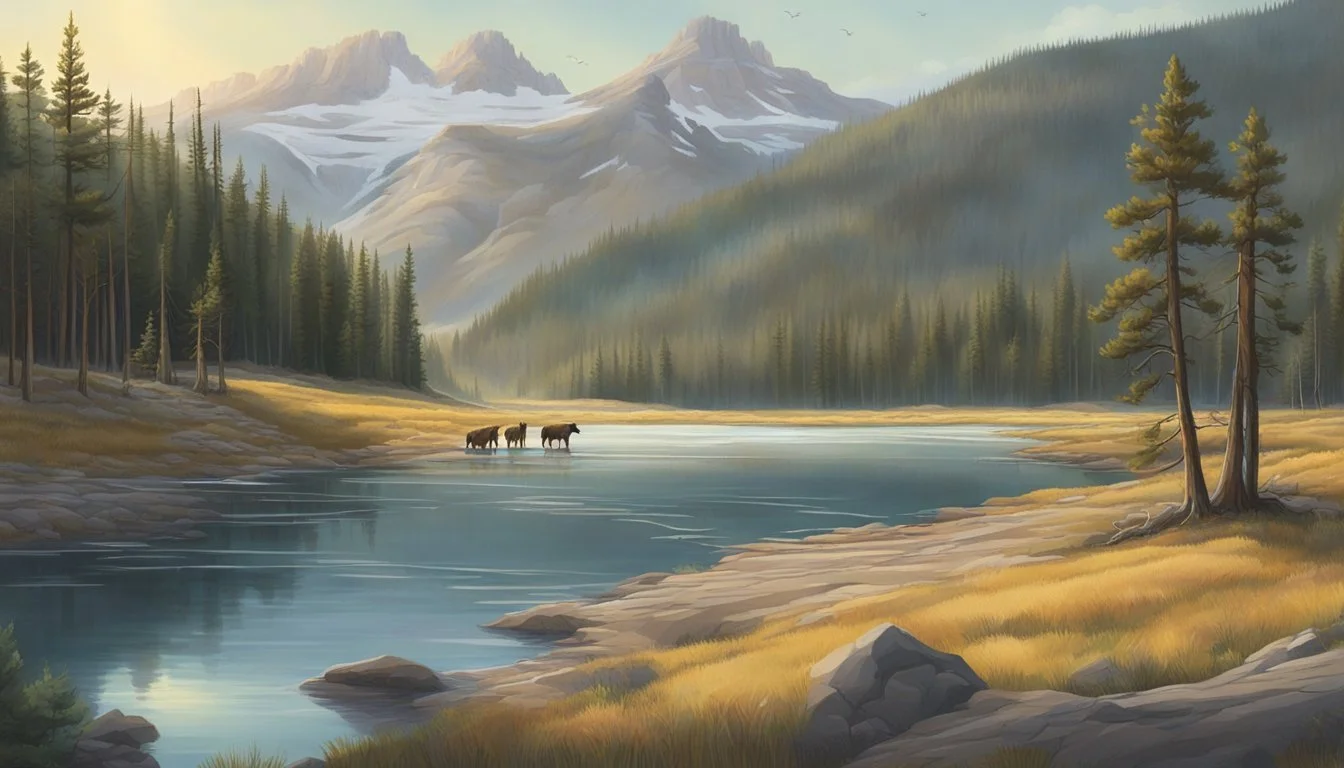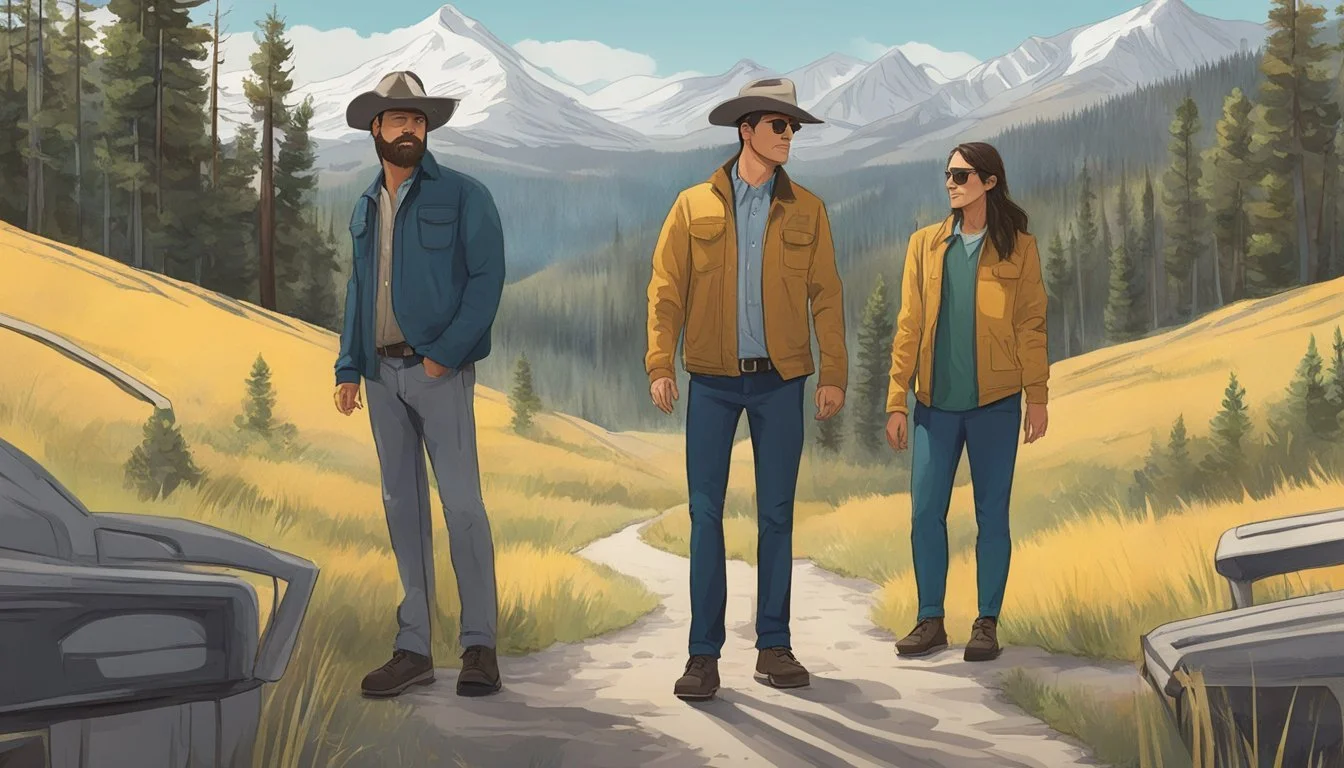Addiction and Recovery Themes in Yellowstone's Character Arcs
Exploring Struggles and Redemption
Yellowstone, the hit television series, weaves compelling narratives of addiction and recovery throughout its character arcs. The show's creators skillfully explore these themes through the struggles and triumphs of its complex cast, offering viewers a nuanced portrayal of substance abuse and the path to sobriety.
Several key characters in Yellowstone grapple with addiction, using it as a coping mechanism for trauma, family conflict, and the harsh realities of ranch life. Their journeys toward recovery are fraught with setbacks and challenges, mirroring the real-life experiences of many individuals battling substance abuse.
The series doesn't shy away from depicting the ripple effects of addiction on family dynamics and relationships. As characters confront their demons and strive for redemption, Yellowstone provides a powerful lens through which to examine the impact of addiction and the transformative potential of recovery.
Yellowstone: A Cultural Phenomenon
Yellowstone has become a television sensation, captivating audiences with its gripping portrayal of the Dutton family's struggles. The show's success stems from its creator Taylor Sheridan's vision and the compelling saga of the Dutton dynasty.
Creation by Taylor Sheridan and Its Impact
Taylor Sheridan's creation of Yellowstone has redefined modern Western storytelling. The show premiered in 2018 on the Paramount Network, quickly gaining a devoted following. Sheridan's unique perspective, honed from his experiences in rural America, brings authenticity to the series.
Yellowstone's impact extends beyond entertainment, sparking discussions about land rights, family loyalty, and the changing face of the American West. The show's popularity has led to a resurgence of interest in Western-themed content across various media platforms.
The Dutton Family Saga
At the heart of Yellowstone is the Dutton family, led by the formidable John Dutton, portrayed by Kevin Costner. The Duttons' fight to maintain control of their vast ranch forms the core of the series' dramatic tension.
The family's internal conflicts and alliances provide a rich backdrop for exploring themes of legacy, power, and survival. Each character's journey, from Beth's ruthless business tactics to Kayce's struggle with his identity, contributes to the show's complex narrative.
Yellowstone's portrayal of the Dutton family resonates with viewers, reflecting broader societal issues within the microcosm of their ranch. This connection has transformed the show into a cultural touchstone, inspiring passionate fan engagement and critical analysis.
Character Analysis and Addiction
Yellowstone's characters grapple with addiction and recovery in complex, nuanced ways. Their struggles shape their identities and relationships, reflecting real-world challenges faced by many.
Beth Dutton's Complexities
Beth Dutton, portrayed by Kelly Reilly, embodies a fierce and damaged character. Her addiction to alcohol serves as both a coping mechanism and a destructive force. Beth's sharp wit and ruthless business acumen often mask deep-seated pain and trauma.
Her relationship with addiction is intertwined with her complex family dynamics. Beth's drinking exacerbates her volatile nature, leading to confrontations with loved ones. However, her journey also showcases moments of vulnerability and attempts at sobriety.
Beth's character arc explores the impact of addiction on personal relationships and professional life. Her struggles resonate with viewers, highlighting the ongoing battle many face with substance abuse.
Rip Wheeler: Loyalty and Tough Love
Rip Wheeler, played by Cole Hauser, represents steadfast loyalty and a no-nonsense approach to life. While not directly struggling with addiction, Rip's character is deeply affected by the addictions of those around him, particularly Beth's.
His tough love approach to Beth's drinking demonstrates the challenges faced by loved ones of addicts. Rip's unwavering support, combined with his firm stance against enabling behavior, showcases a realistic portrayal of supporting someone through recovery.
Rip's character provides a counterpoint to the chaos often caused by addiction. His stability and dedication offer hope and a path forward for those battling their demons.
Kayce Dutton's Search for Identity
Kayce Dutton, portrayed by Luke Grimes, embarks on a journey of self-discovery and healing. While not explicitly dealing with substance addiction, Kayce's character arc explores addiction to past trauma and the struggle to break free from destructive patterns.
His search for identity involves confronting family legacies and personal demons. Kayce's experiences with Native American healing practices offer an alternative perspective on recovery and self-improvement.
Kayce's journey illustrates the importance of addressing underlying issues in overcoming addictive behaviors. His character development highlights the potential for growth and change, even in the face of deeply ingrained habits and family expectations.
Recovery and Growth
Several characters in Yellowstone embark on journeys of healing and personal growth, overcoming past traumas and rebuilding relationships. Their paths to recovery highlight the show's exploration of resilience and redemption.
Overcoming Trauma and Betrayal
Rip Wheeler's character arc exemplifies recovery from a traumatic past. Orphaned at a young age, Rip finds purpose and family on the Dutton ranch. He transforms from a troubled teen into a loyal and capable ranch foreman. Beth Dutton also faces her demons, confronting childhood trauma and addiction. Her relationship with Rip becomes a source of strength as she works to heal old wounds.
Jamie Dutton grapples with betrayal and identity issues after learning he was adopted. His struggle leads to complex decisions and strained family ties. Despite setbacks, Jamie attempts to reconcile his place within the Dutton family and his professional aspirations.
Monica and Tate: Family Dynamics and Healing
Monica and Tate Dutton's storyline showcases the challenges of healing within a family unit. After Tate's kidnapping, both mother and son deal with PTSD. Monica supports Tate through therapy and works to create a stable environment. Their journey highlights the importance of professional help and family support in recovery.
The couple's relationship with Kayce evolves as they navigate cultural differences and the demands of the Dutton legacy. Monica's resilience in the face of tragedy and her commitment to her son's well-being demonstrate the power of maternal love in the healing process.
Conflict and Power Struggles
Yellowstone's characters navigate a treacherous landscape of personal and professional conflicts. Power struggles drive much of the show's drama, with family loyalties tested and rivals vying for control.
John vs. Jamie: A Family at War
John Dutton and his adopted son Jamie find themselves locked in a bitter power struggle. Jamie, played by Wes Bentley, grapples with his identity and place within the Dutton family. His legal expertise often clashes with John's ranching traditions.
This father-son conflict escalates as Jamie uncovers secrets about his past. The tension between them threatens the stability of Yellowstone Ranch. Their war of wills showcases the show's complex family dynamics.
Ranching and Land Ownership Tensions
Land ownership forms the core of many conflicts in Yellowstone. The Dutton family fights to maintain control of their vast ranch against numerous threats. Real estate developers, Native American tribes, and the government all seek to claim parts of Yellowstone Ranch.
These tensions highlight broader issues of land use in the American West. The show explores the clash between traditional ranching and modern development pressures. Characters must navigate legal, ethical, and sometimes violent means to protect their interests.
Antagonists and Moral Ambiguity
Yellowstone's antagonists are rarely one-dimensional villains. Characters like Thomas Rainwater and Dan Jenkins present complex motivations for opposing the Duttons. Their actions, while often in conflict with the main characters, stem from understandable goals.
This moral ambiguity extends to the protagonists as well. John Dutton and his allies frequently employ questionable tactics to maintain power. The show blurs the lines between right and wrong, forcing viewers to question their allegiances.
Cinematic Experience
The visual splendor of Yellowstone serves as a powerful backdrop for the show's intense character dramas. Montana's rugged beauty and Yellowstone National Park's iconic features play crucial roles in shaping the series' atmosphere and themes.
Breathtaking Landscapes of Montana
Montana's diverse terrain provides a stunning canvas for Yellowstone's storytelling. Rolling prairies, snow-capped mountains, and expansive valleys create a sense of vastness that mirrors the characters' internal struggles. The show's cinematography captures golden sunsets over the Dutton ranch and misty mornings in the wilderness, enhancing the emotional weight of key scenes.
Aerial shots showcase the immense scale of the land, emphasizing its importance to the Dutton family legacy. Rivers cutting through rocky gorges symbolize the relentless flow of change threatening traditional ways of life.
Relevance of Yellowstone National Park
Yellowstone National Park serves as more than just a namesake for the series. Its geothermal features, wildlife, and pristine ecosystems represent the untamed nature the characters seek to protect or exploit. The park's borders often become focal points for conflicts between conservationists, developers, and the Dutton ranch.
Iconic locations like Old Faithful and the Grand Prismatic Spring make appearances, grounding the fictional narrative in a real and recognizable setting. The park's status as America's first national park parallels themes of preservation versus progress central to the show's plot.
Themes of Survival and Adaptation
Yellowstone explores the harsh realities of survival in the modern American West. The Dutton family's cattle ranch serves as a microcosm for broader struggles against encroaching development and changing times.
John Dutton fiercely defends his land and legacy, adapting ruthless tactics to ensure the ranch's survival. His children must also evolve to protect their inheritance and way of life.
The series portrays the challenges of maintaining a working cattle ranch in the 21st century. Characters face economic pressures, legal battles, and environmental issues that threaten their livelihood.
Survival often comes at a steep moral cost in Yellowstone's world. Characters make difficult choices and compromise their values to preserve what they hold dear.
The show depicts both physical and psychological adaptation. Ranch hands endure grueling work and dangerous conditions, while family members navigate complex emotional terrain.
Yellowstone's themes of survival extend beyond the ranch to encompass Native American characters fighting to reclaim their land and identity. This adds depth to the show's exploration of adaptation in a changing landscape.
Season 5 Highlights
Season 5 of Yellowstone brings new challenges and pivotal moments for the Dutton family. The storylines evolve in unexpected directions, introducing intriguing characters and culminating in a gripping finale.
Evolving Storylines and New Developments
John Dutton's role as governor takes center stage, presenting fresh conflicts for the family patriarch. His political position clashes with his ranching priorities, forcing difficult decisions. Beth Dutton continues her fierce defense of family interests, facing both personal and professional hurdles.
Jamie Dutton's complex relationship with his adoptive family intensifies. His actions have far-reaching consequences for the ranch and the state. Kayce and Monica Dutton navigate personal tragedies, testing their resilience and bond.
The Broken Rock Reservation storylines gain prominence. Thomas Rainwater's leadership faces challenges from within and without. This development adds layers to the ongoing land disputes central to the series.
The Emergence of Sarah Atwood
Sarah Atwood enters the Yellowstone universe as a formidable new player. Her character brings a fresh dynamic to the political and business landscape surrounding the Duttons. Sarah's strategic mind and ambition quickly make her a key figure in the season's power struggles.
Her interactions with Jamie Dutton prove particularly significant. Their alliance shifts the balance of power within the family and beyond. Sarah's motivations remain shrouded in mystery, adding intrigue to her every move.
Her presence catalyzes several pivotal plot points. Sarah's influence extends beyond personal relationships, impacting the broader narrative of land ownership and political control in Montana.
Finale: 'Life is a Promise' Explained
The Season 5 finale, titled "Life is a Promise," delivers a series of dramatic revelations and cliffhangers. John Dutton faces the consequences of his gubernatorial decisions, with his political future hanging in the balance. Beth's plans come to a head, resulting in unexpected alliances and betrayals.
The episode explores the theme of promises – those kept and broken. Each character grapples with the weight of their commitments and the price of loyalty. The Dutton ranch's fate remains uncertain, with external threats looming larger than ever.
Key scenes set up compelling storylines for the future. The finale leaves viewers with burning questions about the family's unity and the ranch's survival. It masterfully blends resolution with new conflicts, ensuring audience engagement for the next chapter.
Exploring the Yellowstone Universe
The Yellowstone franchise has expanded beyond its original series, delving into different time periods and characters within the Dutton family saga. This expansion has solidified the show's place in popular culture and allowed for deeper exploration of themes and storylines.
Spinoff Series and Extended Storytelling
Yellowstone's success has spawned multiple spinoff series, each offering unique perspectives on the Dutton family history. "1883" takes viewers back to the 19th century, chronicling the Duttons' journey westward. "1923" explores the family's struggles during Prohibition and the Great Depression. These prequels provide context for the modern-day conflicts in Yellowstone.
Another spinoff, "6666," shifts focus to the legendary Four Sixes Ranch in Texas. These series expand the Yellowstone universe, allowing for richer character development and more intricate storylines. They maintain the high production values and strong narratives that made the original series a hit.
The Legacy of the Dutton Family in Popular Culture
Yellowstone has left an indelible mark on modern Western dramas. The Dutton family's struggles with land ownership, power, and loyalty resonate with audiences. Their complex relationships and moral ambiguities have sparked discussions about family dynamics and the changing American West.
The show's influence extends to fashion, with cowboy hats and Western wear seeing a resurgence in popularity. It has also renewed interest in ranch life and Western values. Yellowstone's success has paved the way for more contemporary Western stories on television, influencing the genre's revival.
Critical Reception and Viewer Engagement
Yellowstone has garnered significant attention from critics and fans alike, sparking discussions about its portrayal of addiction and recovery themes. The show's complex character arcs and dramatic storytelling have resonated strongly with audiences.
Dramatic and Narrative Strengths
Critics have praised Yellowstone's nuanced approach to addiction storylines. The series tackles substance abuse issues with a gritty realism that adds depth to its characters. Many reviewers highlight the show's ability to weave addiction themes into broader narratives without oversimplifying the struggles faced by those affected.
The performances of key cast members in portraying characters dealing with addiction have received particular acclaim. Taylor Sheridan's writing has been lauded for its authenticity in depicting the challenges of recovery within the context of family dynamics and power struggles.
Fan Discussions and Theories
Viewers have actively engaged with Yellowstone's addiction and recovery themes through online forums and social media. Fan theories about character motivations and potential story arcs often center around how past traumas and addictions influence current behaviors.
The show's dedicated fanbase regularly discusses the realistic portrayal of relapse and the long-term impacts of substance abuse on relationships. Many fans express appreciation for the series' unflinching look at addiction's ripple effects across generations.
Online communities have formed to analyze character development, with special attention given to moments of vulnerability and strength in recovery journeys. These discussions often draw parallels between the show's fictional scenarios and real-world experiences with addiction.

